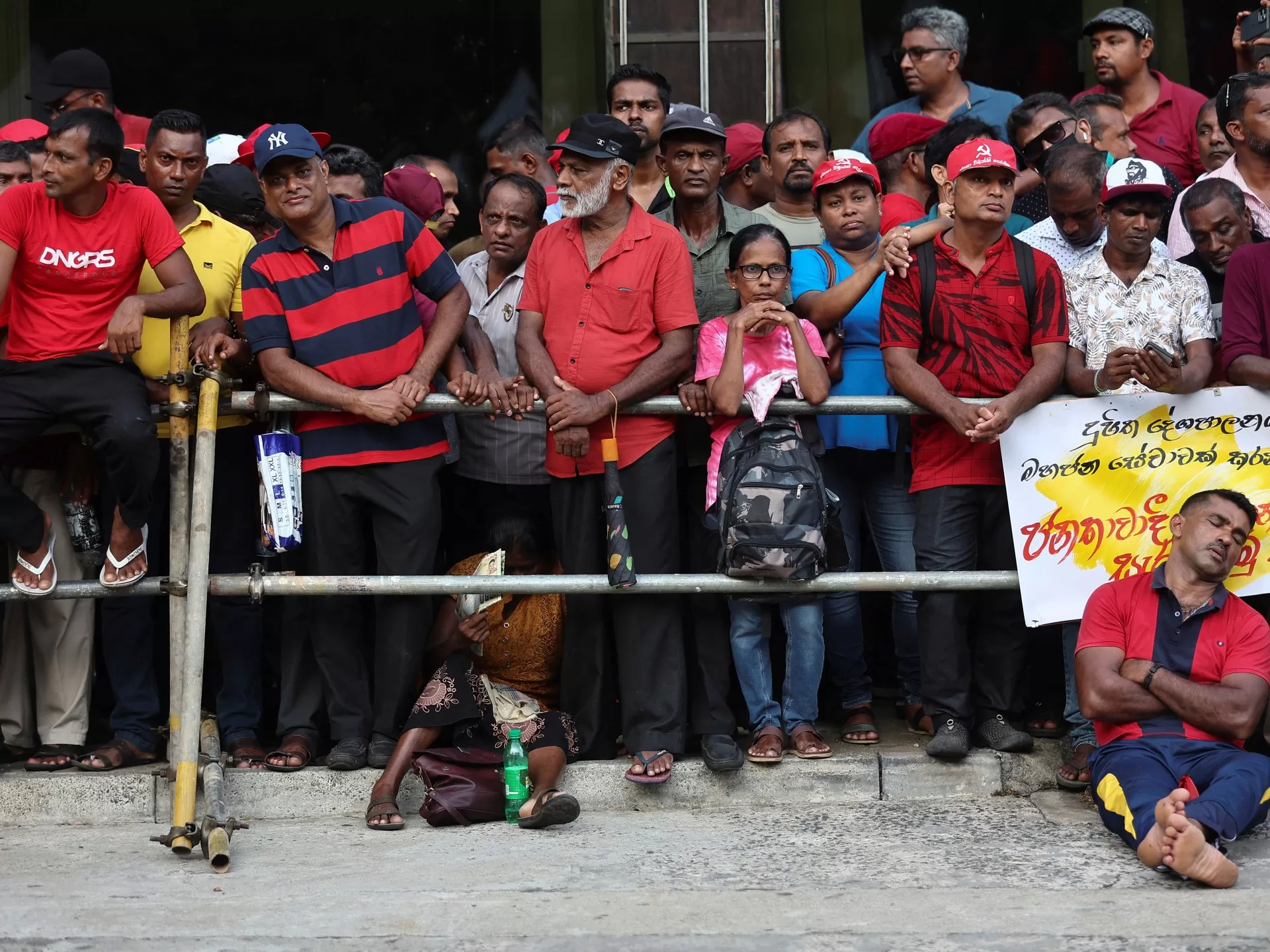President Wickremesinghe is first candidate to register at the Election Commission as he seeks mandate from voters.
Sri Lanka will hold a presidential election on September 21, the Election Commission says, setting the date for a vote expected to determine the future of reforms in a country still struggling to emerge from its worst financial crisis in decades.
Nominations for the election have to be submitted on August 15, the commission said on Friday. Incumbent Ranil Wickremesinghe became the first to register his candidacy on Friday, his office said.
Wickremesinghe, 75, took office in July 2022 after widespread protests caused by the debilitating financial crisis forced his predecessor Gotabaya Rajapaksa to flee the country and later resign.
Parliament elected Wickremesinghe to serve out the rest of Rajapaksa’s five-year term, which began in 2019.
“This election comes after a long period of political and economic upheaval,” Al Jazeera’s Minelle Fernadez said, reporting from the capital, Colombo.
“The country is going through a huge economic crisis with people unable to afford basic essentials like food, medicine and fuel.”
Almost 17 million of Sri Lanka’s 22 million people are eligible to vote.
Election Commission Chairman RMAL Rathnayake told reporters that the election has been scheduled for a Saturday to ensure a high turnout.
Emerging from bankruptcy
The Indian Ocean island nation declared bankruptcy in April 2022 with more than $83bn in debt – more than half of it to foreign creditors.
Last year, Sri Lanka turned to the International Monetary Fund (IMF) for help to rescue the economy and secured a bailout.
Aided by the $2.9bn bailout programme, Wickremesinghe has stitched the shattered economy back together, bringing down inflation from 70 percent in September 2022 to 1.7 percent in June.
The economy is expected to grow 3 percent in 2024 after shrinking 2.3 percent last year and 7.3 percent during the height of the crisis in 2022.
Opposition leader Sajith Premadasa and parliamentarian Anura Kumara Dissanayake, who heads the Marxist-leaning Janatha Vimukthi Peramuna (JVP), are also expected to run for president.
Premadasa and Dissanayake have publicly said they will look at revamping the IMF programme to reduce cost of living pressures and ease the debt repayment burden.
The economic recovery is still fragile and attempts to reverse the reforms could precipitate a new crisis, analysts warned.
“What we require from this election is for the progress we have seen to continue,” said Raynal Wickremeratne, co-head of research at Softlogic Stockbrokers.
“Sri Lanka is not in a position to attempt trial and error.”
